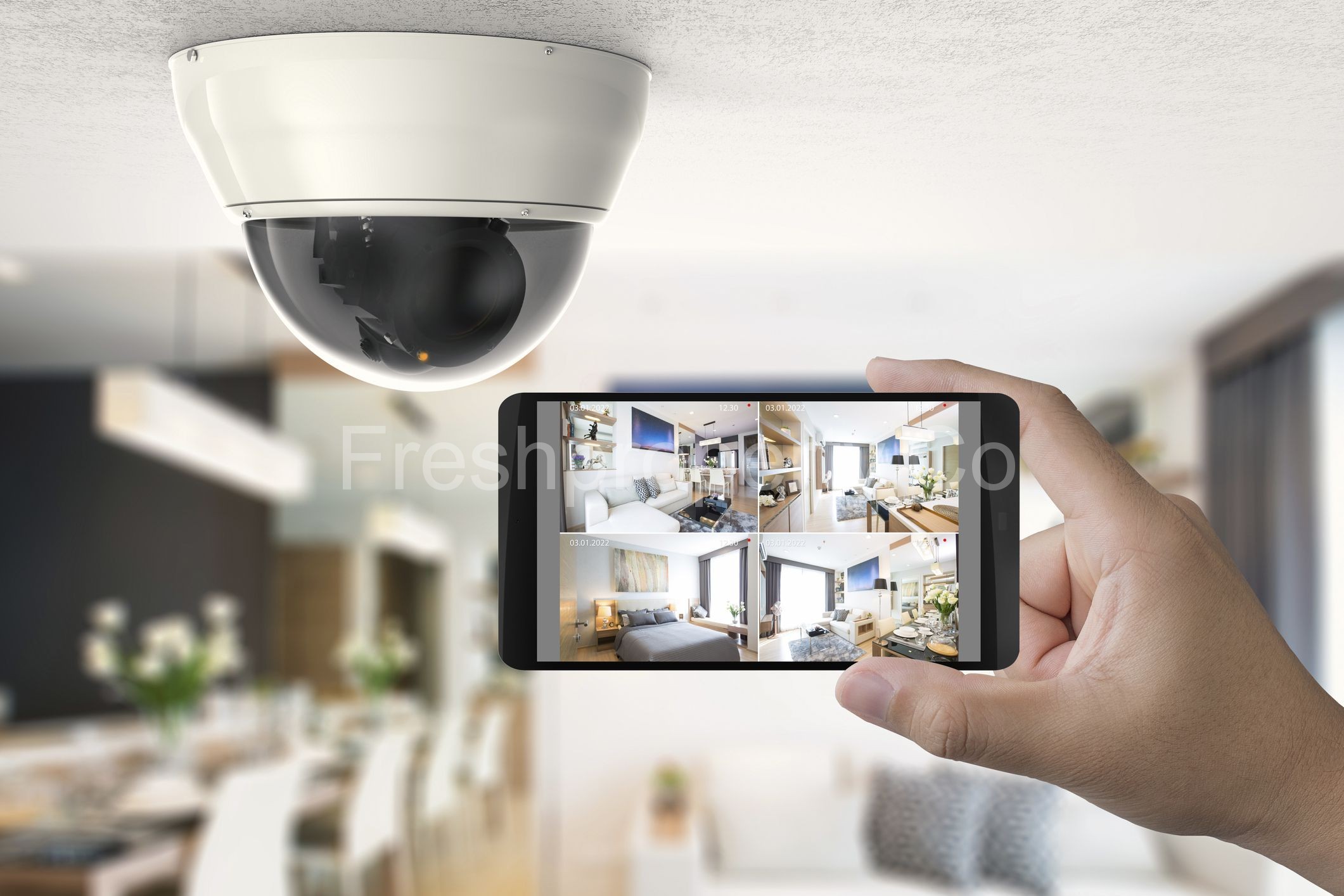CCTV Cameras: The Issues of Privacy in Airbnb Homes

Being secretly filmed by a hidden camera is a traumatic experience for any unsuspecting traveller.
In 2017, a couple staying in an Airbnb unit in Japan noticed a green light from a smoke detector in their bedroom.
Dismantling the device, they found it was actually a well-disguised camera recording everything in the bedroom, the Korean Times reported. The exact model was sold online.
After a police report, the device was confiscated and the host banned by Airbnb.
And yet, situations like these are occurring more frequently all over the world from Florida to Canada to Taiwan, raising the question of whether hosts have the right to install surveillance devices in their properties.
The stunning answer is “yes”.
Here’s why:
• CCTVs help prevent burglaries and safeguard guests.
• CCTV footage can be used as evidence in the event of an accident in the property.
• CCTVs are proof of guests’ bad behaviour eg smoking or partying.
But, there are limits as to where CCTVs can be installed. Airbnb’s hosting safely guidelines requires “all members of the Airbnb community to respect each other’s privacy”.
Hosts must disclose all surveillance devices in their listings and are also not allowed to place any recording devices in private rooms like bathrooms and sleeping areas.
If a host fails to disclose their device, or only discloses it after a booking, guests can report it to Airbnb and receive a refund.
Unfortunately, the guidelines don’t mention anything about other areas in the house (such as the living room or kitchen). So, recording in “non-private” areas is still “technically” allowed.
But, what about a guest’s legal rights? Is this an invasion of privacy according to Malaysian law?
The answer is not clear. The closest is Article 5 of The Federal Constitution, which states that “no person shall be deprived of his life or personal liberty save in accordance with the law.”
The term “personal liberty” can include the right to privacy. According to privacy law expert Fong Cheng Leong in an interview with BFM, “the right to privacy is the right to be left alone and the right to control information. It could be financial information, photos, our relationships with others, personal information, videos, and activities.”
“However, the right to privacy isn’t a very strong ‘right’ in Malaysia and isn’t highly-recognised. But this is changing. In the past, you could not sue someone for invading your privacy, but thanks to a few recognised cases in recent years, you can now take action against someone who’s invading your privacy rights.”
Malaysia doesn’t have laws against voyeurism, the act of spying on someone either by watching, photographing, or recording a private act without consent, or for sexual gratification.
So, while it means you can’t sue someone for “invading your privacy”, you can always reference past cases like Lew Cha Paw & 11 Ors v Pua Yong Yong & Anor [2009] and Toh See Wei v Teddric Jon Mohr & Anor [2017] if you want to take action, according to website asklegal.my.
Still, you should make a police report because more often than not, you’re likely to claim for damages.
Is it against the Personal Data Protection Act 2010?
According to asklegal.my the Personal Data Protection Act 2010 protects your private information eg name, home address, email address, and phone number, from being used for commercial reasons. For example, it’s illegal for banks to sell your information to telemarketers.
A company or an individual that possesses your data also cannot disclose your information without your consent.
If an organisation or individual gains and uses your information without your consent or via illegal means, you can take legal action. And they could face heavy punishments.
Unfortunately, unless the Airbnb host uses your information for commercial reasons, the act doesn’t cover the invasion of your privacy through CCTV recordings.
How hosts can improve the security of their Airbnb units
1. Install CCTV outdoors only
Place a camera by the front door so you can monitor how many guests come in and out of the house, as well as identify their faces.
2. Vet your guests
The best way to ensure that you have reliable guests is to ask questions so you know the purpose of their visit and plans.
Some will accidentally “expose” themselves by revealing that they plan to bring extra guests.
Other warning signs include guests that are evasive or who only book for one night. This could be that they’re using it for a party.
And don’t forget to screen for documents such as IC, contact number, credit card number, photo etc.
3. Get insurance coverage
Airbnb provides insurance coverage for up to US$1 million for certain property damage. However, it doesn’t cover personal belongings. This includes artwork, collectables, jewellery, and items that suffer ordinary wear and tear.
So, Airbnb recommends that you have your own private home insurance coverage for non-insured items.
4. Make house rules clear
Be as specific as possible regarding rules on smoking, drinking, extra guests, overall etiquette, and cleanliness. This helps to make it possible to cancel the reservation if guests don’t comply with your rules.
How guests can spot hidden cameras
1. Use a torchlight to sweep the room
Switch off all lights in the room. Then use a torchlight and scan the area. You may be able to detect whether a room has a hidden camera installed if the lens reflect your light.
2. Look around for strange objects
Remember, these cameras are well-disguised to look like normal, everyday objects. But, if you notice something strange – such as a black hole next to the smoke detector, or an unusually heavy shower gel bottle – take a closer look.
3. Use a hidden camera detector
These work by detecting the radio frequency emitted by wireless and wired cameras. However, they don’t work for cameras with internal storage.
Or, you can download apps like Hidden Camera Detector and Glint Finder to help you scan for sneaky devices.






Join The Discussion